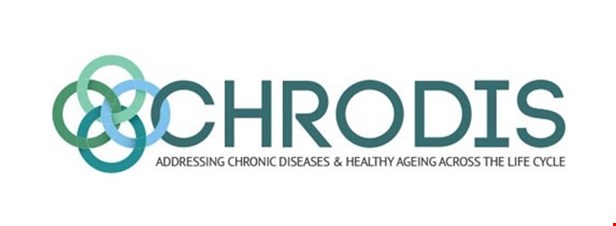CHRODIS Delphi Surveys: First Impressions
 ©JACHRODIS
©JACHRODIS
Following the completion of the Delphi-style panels of the Joint Action CHRODIS, a pannelist reflects on the main take-away messages of these assessment activities.
The Joint Action (JA) CHRODIS brings together more than 70 partners (including EPF) and aims at promoting and exchanging good practices between European countries, addressing chronic conditions with a focus on health promotion and prevention of chronic conditions, multi - morbidity and diabetes.
One of the key outputs of the CHRODIS is the Platform for Knowledge Exchange (PKE). The purpose of which is to store and share good practices on prevention and health promotion; management of chronic diseases and patient empowerment with interested parties.
The collected practices will be submitted to a panel of reviewers who will assess their quality and validity based on a number of criteria.
These criteria have been identified, assessed and weighted through a multi-stakeholder consensus building process called DELPHI. The DELPHI panels help to find a consensus on specific topics, among different stakeholders with various interests and perspectives.
Following the delivery of the four CHRODIS DELPHI panels on health promotion and prevention, organisational interventions, patient empowerment and diabetes, it is now possible to gather some take away messages and ask Enrique Bernal-Delgado (Aragon Health Sciences Institute - IACS), CHRODIS WP4 leader and DELPHI moderator about his impressions.
As moderator you have conducted four Delphi panels on different topics. Have you identified any common pattern?
Whatever the domain - health promotion, primary or secondary prevention, patient empowerment, organizational interventions or a specific condition like diabetes - the experts highlighted the importance of evaluating practices. Acknowledging the difficulty of executing formal evaluations to demonstrate health outcomes improvement, they have put the accent on more formative evaluations. Therefore, the evaluations shift their focus towards the keys for success and failure.
Another common pattern observed is the relatively low weight allocated to transferability as criterion for the assessment of a practice. The weight is much lesser that I would have expected listening to the current public discourse on practices scalability. I can understand though that the experts did point out to the importance of the local context; in other words, if the objective is getting better outcomes, experts do prioritize those elements that describe how well a practice is implemented in a particular context rather than to what extent this practice could be exchanged and transferred into another setting.
In your opinion, what was most striking in terms of results?
The results of the last DELPHI (the criteria and categories) very much overlaps the results from the other panels. This confirms that Diabetes was well selected as case study within CHRODIS JA; but also, that the results out of this panel of Diabetes might be used to assess practices on any other condition.
Interestingly the DELPHI panels lead to a result all participants representing different stakeholders identify with, and no one feels their perspective was disregarded or marginalised. Beyond the practical results, the added value of consensus building processes, lays in the willingness to share knowledge with the perspective to achieve the common goal of better healthcare for all patients.
The report on the latest DELPHI panel on diabetes will be finalised soon, while the PKE will be open to the public by the end of 2016.
Contact: Valentina Strammiello, Programme Officer, valentina.strammiello@eu-patient.eu
